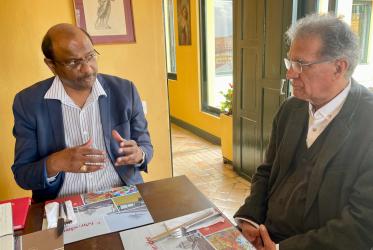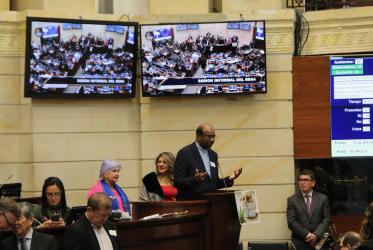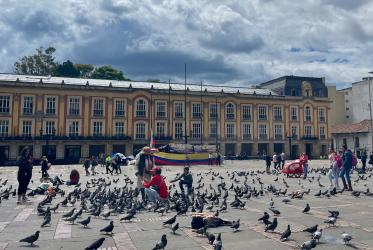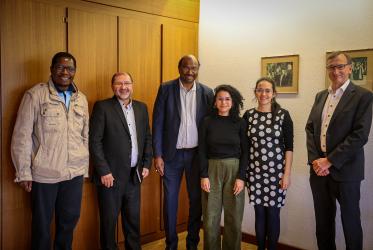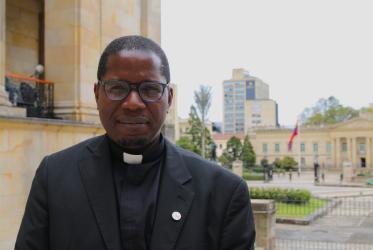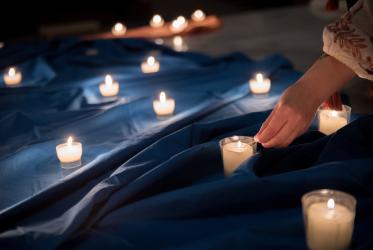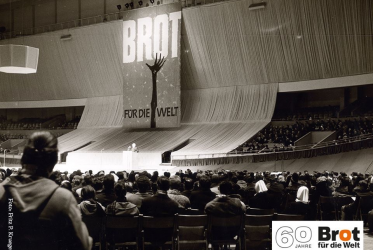Displaying 1 - 20 of 60
WCC at peace dialogue table with UN Security Council in Colombia
15 February 2024
WCC backs extension of ceasefire in Colombia
18 January 2024
WCC general secretary speaks before Colombian senate
15 December 2023
Justapaz shares peace-building work in Colombia
10 October 2023
WCC appointed as permanent accompanier in Colombian peace talks
21 September 2023
WCC underscores support for Colombia peace process
03 August 2023


